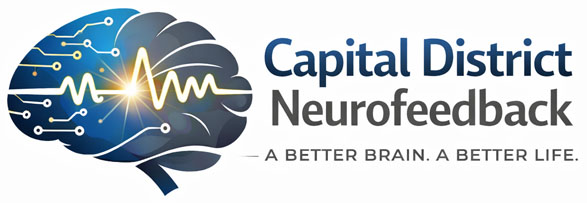“Watch your thoughts, for your thoughts become words. Watch your words, for your words become actions. Watch your actions, for your actions become habits. Watch your habits, for your habits become character. Watch your character, for it becomes destiny.”
-Frank Outlaw
This quote has hung in my office for years. I reference it often-not because it’s poetic, but because it’s true. In just a few lines, it captures the path we all walk, whether consciously or not.
This isn’t just philosophy. It’s how our brains work. Modern neuroscience confirms what Frank Outlaw captured decades ago: Our daily thoughts and habits quite literally wire our brains and shape the lives we end up living.
So let’s break this down-because inside this quote is the secret to lasting change, both for us and for our children.
Thoughts Are the Starting Point
Thoughts are not just mental noise. They’re electrical impulses firing through your brain’s neural networks. When repeated, they strengthen those pathways. The more you think a thought-whether it’s helpful or not-the more natural and automatic it becomes.
This is the essence of neuroplasticity. Your brain becomes efficient at whatever it does repeatedly. If you constantly think, “I can’t handle this,” or “My child is always a mess,” guess what happens? Your brain gets better at proving you right.
That’s why we begin by looking at our thoughts. Not judging them-but noticing them. And then, are they serving me? If not, turn away from them. Don’t feed them with your attention and energy.
Words Give Power to Thought
Thoughts become more powerful when we give them voice. Words aren’t neutral. They reinforce beliefs, and those beliefs start guiding how we behave.
This is especially true when parenting. If we keep saying, “You never listen,” or “You’re always so difficult,” we’re reinforcing a narrative that can define not only how we see our children-but how they see themselves.
The same is true with our self-talk. Saying, “I’m overwhelmed,” or “I can’t do this anymore,” becomes a self-fulfilling prophecy.
Try instead:
- “This is a challenge I can grow through.”
- “I’m learning to stay calm.”
- “We’re building a better path.”
- “You will figure this out.”
These small shifts reprogram the brain-yours and your child’s.
Actions Anchor Belief
Thoughts and words create a readiness for action. And once we act—even in small ways-we reinforce those beliefs through experience.
Let’s say your child throws a tantrum. If you scream in response, that reaction becomes a pattern. If repeated, it becomes your brain’s automatic response. Adults are the same; once we act on a thought and, for example, exhibit aggression toward others-we become more likely to do that again. How do gangs solidify their members? By having them take action. It becomes the anchor, albeit not a healthy one.
Consider alternatives: When you pause, breathe, and walk away-or calmly guide your child through the moment-you’re building a new neural pathway. When your turn away from something upsetting you to focus on something that feels a tiny bit better – you’re building that new neural pathway. That one conscious act might not feel like a breakthrough, but if repeated? It becomes a game-changer.
Habits Build Character
Repeated actions create habits. And habits are the real building blocks of our character-not just in a moral sense, but in terms of our brain’s default responses.
If we consistently model patience, practice gratitude, or respond with firm, calm authority-those become habits. And those habits build our resilience, confidence, and emotional stability.
In parenting, the same applies to our children. What we reinforce becomes their norm. If we feed the right seeds with consistent praise, attention, and structure, we shape their emotional wiring in a healthy direction.
Character Determines Destiny
This is where it all leads. Your character-the consistent traits you display over time-shapes the trajectory of your life.
It’s not fate. It’s not luck. It’s the result of what you practice. And you are practicing something every single day.
This is why I often remind parents: You don’t need a major life overhaul. You just need incremental changes to feed better thoughts, speak wiser words, act with more intention, and build small habits that serve the bigger picture.
What If You Feel Stuck?
For some, this all makes sense… but still feels out of reach. If your brain is over-stimulated, stuck in anxiety or reactivity, it can be tough to access calm thoughts or intentional habits.
That’s where neurofeedback comes in. It’s a gentle, science-based way to help regulate a dysregulated brain. Once calmer, everything I’ve just described becomes easier. Not automatic-but doable.
Neurofeedback isn’t a magic fix, but it clears the path so you can start building a better life-thought by thought, habit by habit.
Final Thoughts
This quote by Frank Outlaw gives us a simple roadmap: Thoughts -> Words -> Actions -> Habits -> Character -> Destiny.
And here’s the hope: At every point in that chain, you can intervene. You can choose. You can begin again.
You’re not stuck. You’re not broken. You’re simply practicing what you’ve practiced. And you can begin practicing something better-starting today.
Let’s feed the seeds. One choice at a time.





